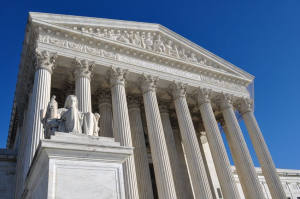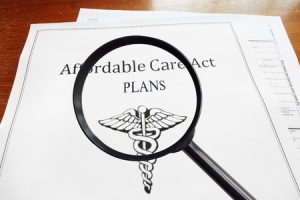individual mandate
On March 2, 2020, the Supreme Court of the United States (SCOTUS) announced that it would once again hear a case on the Affordable Care Act (ACA) and whether the law is constitutional.
The Internal Revenue Service (IRS) has revised its frequently asked questions (FAQ) information pertaining to the Employer Mandate. More specifically, the IRS has confirmed that an employer who provides coverage through an association health plan (AHP) has no relevance to the Employer Mandate. An employer isn’t dragged into the Employer Mandate requirements simply because they provide coverage through an AHP. Only employers with 50 or more full-time equivalent employees in the prior calendar year will be subject to the Employer Mandate. Question and answer #18 from the FAQ is shown below.
A lawsuit contesting the legality of the Affordable Care Act (ACA), also known as Obamacare, is starting to gain a lot of attention. Last December, the Tax Cuts and Jobs Act was signed into law. Part of this law made the penalty under the Individual Mandate $0 starting in 2019. Technically the Individual Mandate is still in place, but there will no longer be any penalty under federal law for failing to health insurance.
The Tax Cuts and Jobs Act signed into law last year wiped out the federal penalty for not having health insurance (a.k.a. the Individual Mandate) starting in 2019. Some state officials are concerned that the elimination of the penalty could destabilize their local insurance markets, and they have responded with their own Individual Mandate requirements.
There seems to be a lot of confusion about the status of the Individual Mandate, so we thought it would be appropriate to provide some clarification on its status.
The Tax Cuts and Jobs Act, also known as the Tax Act, was signed into law on December 22, 2017. The Tax Act makes several changes to the existing tax code, including the repeal of the Individual Mandate (kind of, sort of). The Individual Mandate was not literally repealed by the Tax Act, but the penalty for failing to have minimum essential coverage (e.g., health insurance) has been reduced to $0 starting on January 1, 2019. This is effectively the equivalent of repeal; however, the Individual Mandate will still be applicable for the 2017 and 2018 tax years. This change to the Individual Mandate has spurred numerous questions and/or speculations, including:










